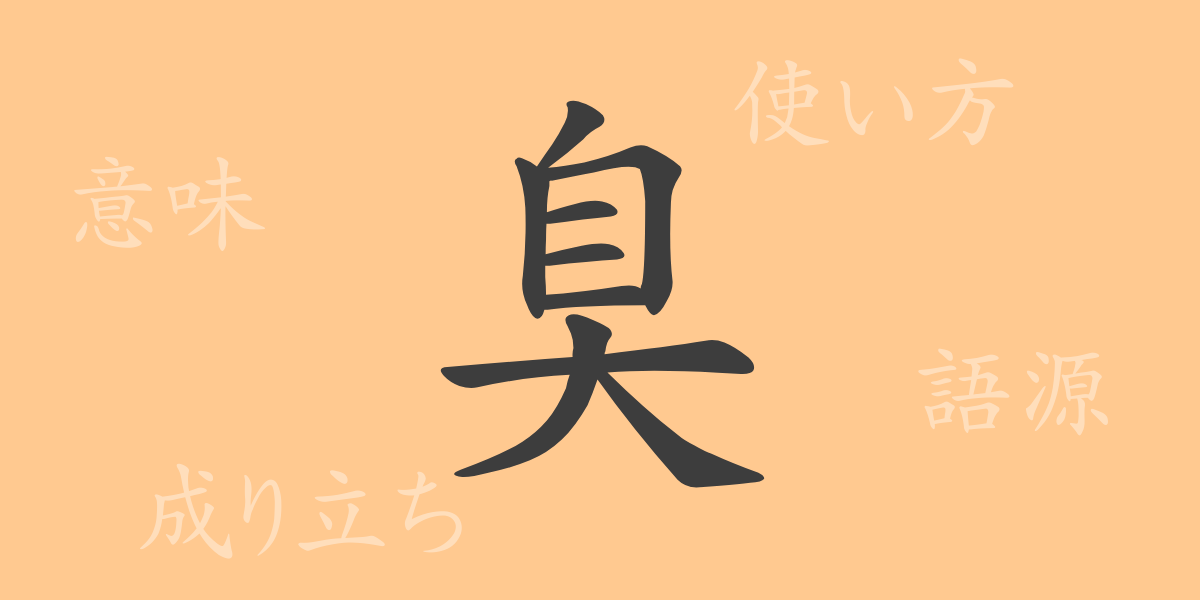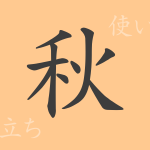The kanji “臭(しゅう)” is casually used in everyday life. This character appears frequently in daily conversations and various contexts, but what history and meanings are hidden behind it? This time, we will delve into the origins, meanings, uses, and even idioms and phrases involving “臭(しゅう).” Let’s step into the familiar yet surprisingly unknown world of “臭(しゅう).”
Origin of 臭(しゅう) (Etymology)
The origin of the kanji “臭(しゅう)” is ancient. Its form evolved from pictographs representing strong odors in the natural world, particularly the smell of burning meat. The original shape can be seen in ancient Chinese oracle bone script, depicted as a combination of smoke and meat. Over time, it came to be used more abstractly to indicate general odors.
Meaning and Usage of 臭(しゅう)
“臭(しゅう)” primarily means “to smell,” encompassing both positive fragrances and negative odors. Additionally, it can be used metaphorically to indicate sensing something intangible. For example, “疑惑の臭いがする(ぎわくのにおいがする)” means “there’s a whiff of suspicion.”
Readings, Stroke Count, and Radical of 臭(しゅう)
Understanding the readings and components of “臭(しゅう)” can deepen our grasp of its characteristics.
- Readings: The on’yomi (音読み) reading is “シュウ,” and the kun’yomi (訓読み) readings include “くさ.い” and “にお.う.”
- Stroke count: “臭(しゅう)” consists of 9 strokes.
- Radical: The radical is “自(みずから),” indicating something emitted from oneself.
Idioms, Phrases, and Proverbs Using 臭(しゅう)
Japanese includes various idioms, phrases, and proverbs that contain “臭(しゅう).” These expressions are familiar and useful in various situations.
For instance, “臭気を放つ(しゅうきをはなつ)” describes emitting a strong odor, and “風の便りに臭いがする(かぜのたよりににおいがする)” means to sense some truth behind rumors. Additionally, the proverb “臭いものには蓋をする(くさいものにはふたをする)” criticizes the act of hiding problems to avoid dealing with them.
Conclusion on 臭(しゅう)
This article has explored the origin, meanings, uses, and idioms related to the kanji “臭(しゅう).” While it is a character frequently seen in daily life, it carries a rich history and cultural significance. As you encounter “臭(しゅう)” in your daily communication, remember its deep meanings and appreciate the depth of the language.

























